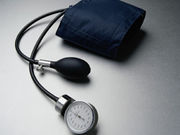Larger effects of 2008 to 2010 recession seen for younger adults and older homeowners
TUESDAY, March 13, 2018 (HealthDay News) — The 2008 to 2010 Great Recession (GR) had a negative impact on the health of U.S. adults, with significant elevations in blood pressure and fasting glucose, according to a study published online March 12 in the Proceedings of the National Academy of Sciences.
Teresa Seeman, Ph.D., from the University of California, Los Angeles, and colleagues examined the impact of the 2008 to 2010 GR on the health of U.S. adults using data from the Multi-Ethnic Study of Atherosclerosis. The impact was assessed in different population subgroups, and analyses were controlled for confounding by individual differences in age-related changes in health over time.
The researchers identified significant elevations for blood pressure and fasting glucose post-GR, particularly among those on medication before the GR. Post-GR, there were reductions in the prevalence and intensity of medication use. Across subgroups there were important differences in the effects of the GR, with larger effects among younger adults, who were likely to be in the labor force, and older homeowners, whose declining home wealth probably reduced financial security. Older adults without a college degree were the least affected, perhaps because their greater reliance on Medicare and Social Security provided more protection from the GR.
“The findings themselves underscore the fact that economic upheavals such as the GR not only result in deleterious economic consequences that impact some population subgroups more than others but that those same population subgroups shoulder more deleterious health impacts as well,” the authors write.
Copyright © 2018 HealthDay. All rights reserved.








